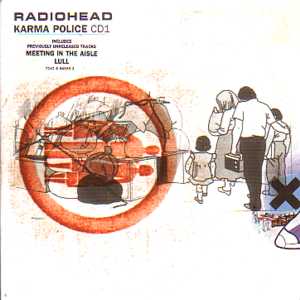Zen nonsense
It is a commonplace explanation of Zen Koans that they are riddles with no logical solution, designed to provoke a non-rational response. While this is not absolutely wrong, it is generally misunderstood to mean that the responses to Koans are arbitrary nonsense. Ben-ami Scharfstein makes a direct equivalence between Zen and Dada in The Sound of One Hand.
Dadaists used absurdity as a tool to articulate despair. Dada art was created with junk and visually repulsive materials as an expression of their stringent anti-establishmentarianism. Ben-ami Scharfstein equates this nonsensical Dada trait with the 'mystical madness' of Zen masters in his introduction to The Sound of the One Hand. He cites a poem by one of the Dadaists, Kurt Schwitters that begins with:Source: http://www.lifepositive.com/Spirit/world-religions/buddhism/zen/koan.asp
Z
A R P
A B C
and ends with :
Z
Z
Z
This nonsense verse is compared to one composed by Master Mumon who attained satori after a four-year contemplation of the 'Mu koan':
Mu! Mu! Mu! Mu!
Mu! Mu! Mu! Mu!
This is of course quite inaccurate, but an understandable mistake to make. Zen koans are often composed of complex metaphors and are often genuinely paradoxical, so to those unfamiliar with them they might well seem indistinguishable from Dadaist nonsense. Compare this:
"The blue mountains are constantly walking. The stone woman gives birth to a child in the night...the East Mountain is moving over the water"
With:
"DADA doubts everything. Dada is an armadillo. Everything is Dada, too. Beware of Dada. Anti-dadaism is a disease: selfkleptomania, man's normal condition, is DADA. But the real dadas are against DADA."
Or for that matter:
"But four young oysters hurried up,
All eager for the treat:
Their coats were brushed, their faces washed,
Their shoes were clean and neat --
And this was odd, because, you know,
They hadn't any feet."
I've come across Zen Buddhists online who have literally Edward Lear verses in response to questions about Buddhism. But this is a misunderstanding of Zen. Just because you can't immediately make sense of something does not mean it is nonsense.. All the koans I've been able to investigate in detail can be understood in terms of Buddhist philosophy, although it is of course possible that there are others which are indeed arbitrary nonsense - there are plenty of koans I can't yet make sense of.
It is a little known fact that the Dada art movement which later evolved into the Surrealist movement was strongly influenced by Zen, or perhaps more accurately, by a misinterpretation of Zen as anti-rationalism. This is not to say that Zen and Dada have no relation or that Dada has no value. Dada was a highly radical, subversive, nihilistic, anti-art movement, which sought to destroy traditional culture and aesthetics - to overthrow order and the violence - in particular the First World War - which the Dadaists believed it caused.
Dada is anti-rational - it aims to make as little sense as possible, to be free from reason. The aim of Zen is freedom too, but it is freedom from rejection as well as attachment. It is neither nihilistic nor chaotic. The key difference between Zen and Dada is that Dada is a form of nihilism and anti-rationalism and Zen avoids such extreme views, being a direct engagement with reality rather than being a philosophy or ideology at all.
You will never understand that life is a pun, for you will never be alone enough to reject hatred, judgments, all these things that require such an effort, in favor of a calm level state of mind that makes everything equal and without importance. Dada is not at all modern. It is more in the nature of a return to an almost Buddhist religion of indifference.Tristan Tzara, Dada Manifesto 1918
http://en.wikipedia.org/wiki/Dada
http://www.angelfire.com/zine/dadamonster/tzara.html
http://www.english.upenn.edu/~jenglish/English104/tzara.html
A monk was asked to discard everything. "But I have nothing," he exclaimed. "Discard that too!" ordered his master.
(An aim of Buddhism is to avoid clinging to all concepts. 'Nothing' is a concept and is clinging to it can be a real problem for practioners. The master is telling the student to discard this too.)
Q: What is Buddha ? A: Dried shit on a stick.
(I think this is an attempt to sabotage the questioner's dualistic thinking, his mental searching for 'Buddha' separate from the mundane, a sacred reality separate from the profane. Buddha is this very reality, even on a stick you wipe shit with. So the master is switching the student's concept of the sacred with his concept of the profane in order that he can realise the sacred in the profane and the profane in the sacred, in other words to see the interdependent whole. This is the same as the principle: 'There is no difference between samsara and Nirvana')
I read a description of 'enlightenment' in terms of mountains walking a while back and it seemed like nonsense, but I came across an interpretation of it again recently. It was this that prompted this posting.
"The blue mountains are constantly walking. The stone woman gives birth to a child in the night...the East Mountain is moving over the water"
My understanding is that these words are indended to challenge the ordinary view of a strict difference between living and non-living things - even mountains which appear to have persisted for eternity have no fixed nature and are in a state of continuous dynamic change, with mountains flowing through the landscape, being 'born' and 'dying' and flowing (as islands) across water.



















